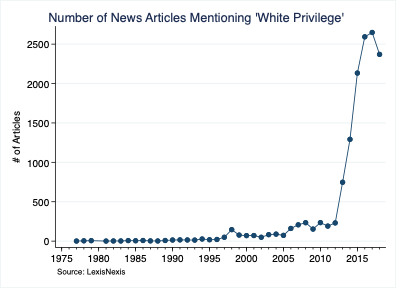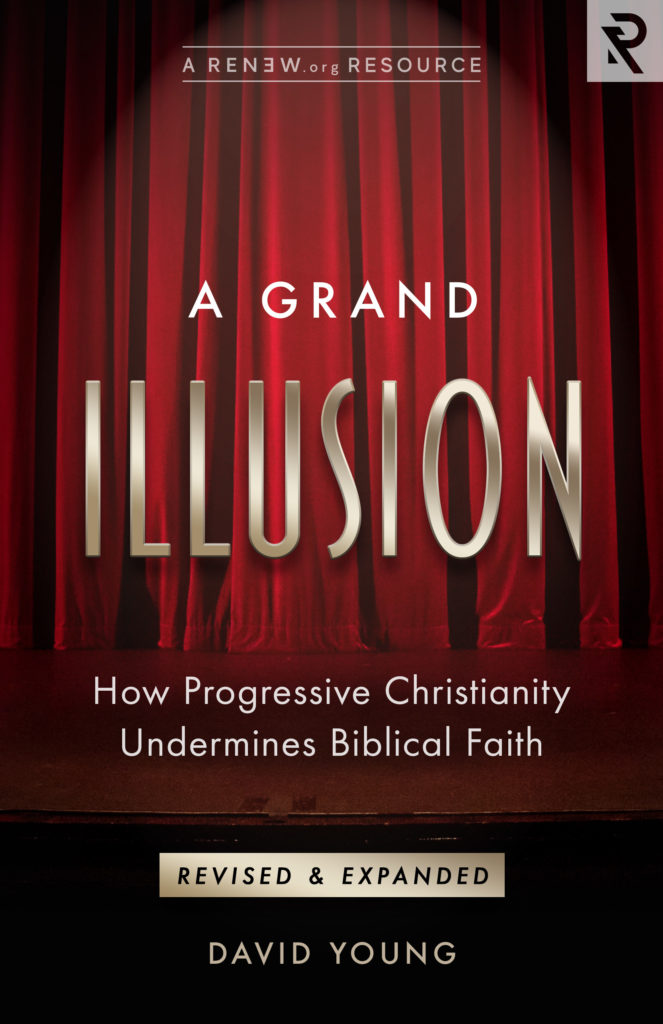
Critical Race Theory: Friend or Foe?
This is Part 1 in this 5-part series assessing Critical Race Theory. Here’s Part 2, 3, 4, and 5.
Critical race theory (CRT). What have you heard about it? What do you think about it? What in the world is it? CRT has been in the news a lot lately. President Trump has recently banned its use in diversity training in federal agencies. We didn’t get a single question about Chinese persecution of religious minorities in the presidential debates, but we did get questions about critical race theory.
You may not have heard about “critical race theory” until recently, but chances are good you’ve heard plenty about terms associated with CRT. Zach Goldberg shared on Twitter research that he had conducted on the use of certain terms by the media. Terms associated with CRT like “whiteness,” “systemic racism,” and “white privilege” have skyrocketed in use in the last five years. This is no accident or coincidence. CRT is shaping public discourse whether you are aware of it or not.


CRT has moved from university classrooms to the streets.
If you have elementary kids in public school, there is a decent chance that they are being taught the principles and assumptions of CRT if not now, then in the future. CRT has moved from obscurity to cultural convention almost over night. CRT is simply assumed to be a positive cultural force independent of debate. Questions about CRT are not met with counter-arguments as much as they are met with public hectoring and unexamined assertions.
As a Christian, and in particular as a Christian in higher education, I have asked and have been asked a lot of questions about CRT.
I have people in my life who insist that CRT should be regarded as a friend to Christians. To them, CRT is a gift that helps Christians to better understand the dynamics of race and justice as we advance the gospel in the world. CRT is a tool that spurs us to empathy, reflection, and action.
I have other people in my life who take a very different approach. They regard CRT as an enemy; a wolf in our midst. It is a toxic influence that ultimately works in ways contrary to the gospel and to the Kingdom.
I have decided to dedicate a series of posts to trying to answer the question. Is CRT a friend or foe for Christians committed to the gospel? I should point out that this doesn’t necessarily have to be a binary choice. For instance, we may find that there are some things that CRT helps us with even if, on balance, it is negative.
I’m going to answer the question by interacting with a particular book on the topic called Critical Race Theory: An Introduction. There are literally dozens of books recently written on CRT. CRT advocates are very fond of their reading lists. Disagreeing with CRT will often be met with encouragement to “do the reading.” It’s not always clear what this means.
It’s just assumed that disagreement is the result of ignorance, not reasons.
Because of this, I realize that any critique/evaluation of CRT must be based on how it is understood by its advocates. I avoided some of the more popular expressions of CRT like White Fragility and How to be an Antiracist partly because many people have interacted with those books and also because books like those are not really explanations or defenses of CRT. They are rather examples of CRT in practice.
This introductory book was very helpful as a basic summary of the principles and applications of CRT written by authors who are experts in the field. In the posts that follow this one, I will summarize some of the points in the book and offer my own evaluation in light of gospel principles.
Before I can move into the content of the book, I must spend a little time articulating those gospel principles. We can’t know if an idea is a friend or foe of the gospel, if we haven’t reflected first on what the gospel tells us.
Human Nature
All people regardless of age, race, gender, class, nationality, or physical ability are made in the image of God and are therefore valuable and precious. This also means that no person is inherently worthy of greater value than anyone else.
All people are also broken, fallen because of sin and rebellion. No person, or class of people, should be seen as without fault or sin. Sin is the consequence of personal choices and actions, but Scripture also recognizes that sin is often experienced in systems of injustice. One person can experience the consequences of another person’s (or group of persons’) sin. Further, we celebrate that all people are equally the targets of God’s grace. No one is beyond the reach of God’s saving work.
It would be a mistake to conclude that Scripture is “color-blind.” Scripture recognizes the presence and importance of “tribe, language, people, and nation.” Scripture does not pretend that Jew, Gentile, Samaritan, male, female, etc. don’t exist. But the gospel also creates a unique in this world unity in the midst of diversity (see Acts 13:1; Rev. 7:9; Gal. 3:26-29)
Justice
The Bible certainly is concerned about justice. God is mindful of the poor and oppressed. It is a well established fact that the Kingdom is “upside down,” running opposite of the power structures of the world. We can also be sure that while God doesn’t hate power and wealth, he hates power and wealth wielded with injustice (see Micah 6:9-13 and James 5:1-6 as just two examples). Kingdom justice welled up in radical generosity and mutual sharing among the first community of Christians (see Acts 2:44-45). Kingdom justice is also not limited by the horizon of this world or this life. Neither is it limited to or bound by human actors. God is the righteous Judge (e.g. Is. 16:4-5) and the avenger (e.g. Rom. 12:19).
This leads to a final point regarding biblical justice. Biblical justice is aimed at the goal of reconciliation; reconciliation with one another, but more importantly, reconciliation with our Creator (e.g. 2 Cor. 5:18-20). The Bible indeed cares about justice in this world – and I believe part of our kingdom work is doing the work of justice in this world – but this is not at the expense of or to the neglect of a right standing before God. Put another way, be careful. It is possible in pursuing justice to gain the whole world but forfeit your soul (Luke 9:25). Justice work is done in faith, hope, and most of all, love.
Jesus
It goes without saying, but most things that go without saying really need to be said anyway. The gospel is centered on Jesus who is the way, the truth, and the life (John 14:6). Jesus is both our center and our foundation. Our identity is hidden in him. Our tribal affiliations (race, age, gender, etc.) matter, but they don’t matter in any ultimate or final sense, and they certainly don’t keep us separated from one another, for we are all centered around the throne (again, Rev. 7:9).
The grace received–and offered–in Jesus transforms everything we do and say. He is the wisdom of God that proves the conventional wisdom of the world to be foolishness (1 Cor. 1:26-31). In Jesus we take every thought captive (2 Cor. 10:5). Without apology, we critique every idea and philosophy in light of the truth of Jesus.
There is of course much more that could be said, but as a start, our assessment of CRT has to begin with these gospel truths firmly established. In the next several posts, I’ll dive into the book in the attempt to establish if CRT is a friend to the gospel, or a foe, or perhaps a combination of the two.
(From chadragsdale.wordpress.com. Used with permission.)








